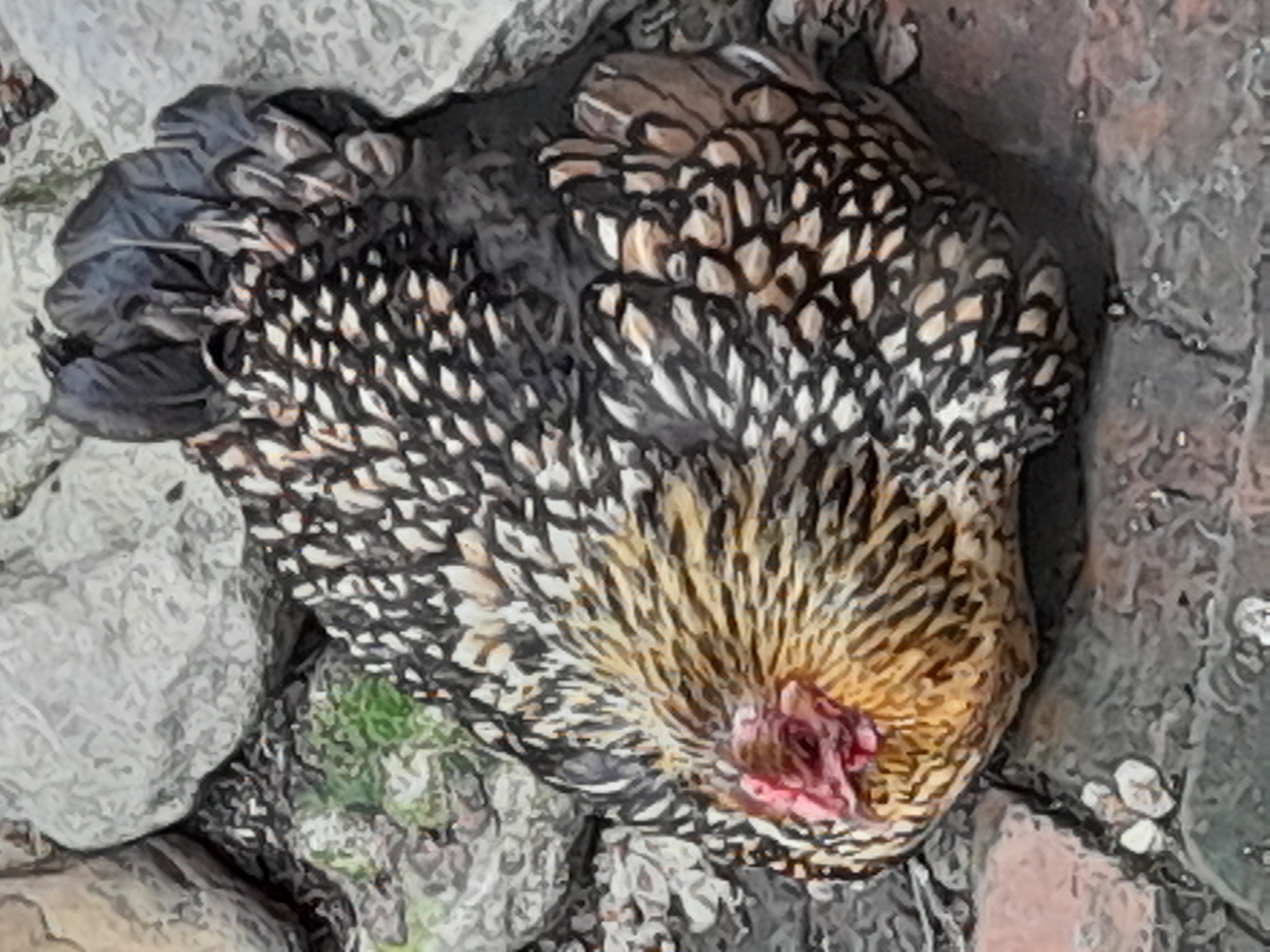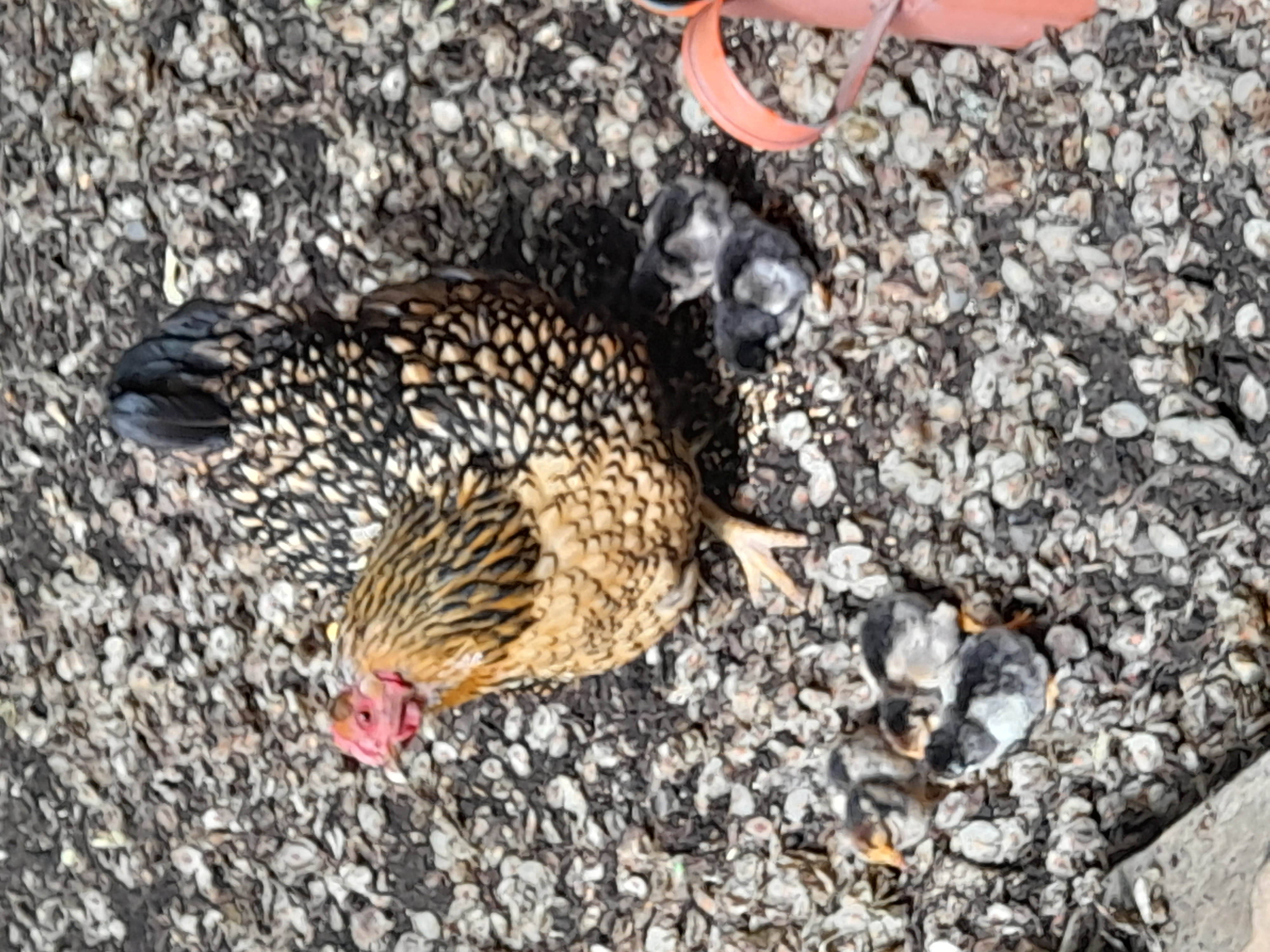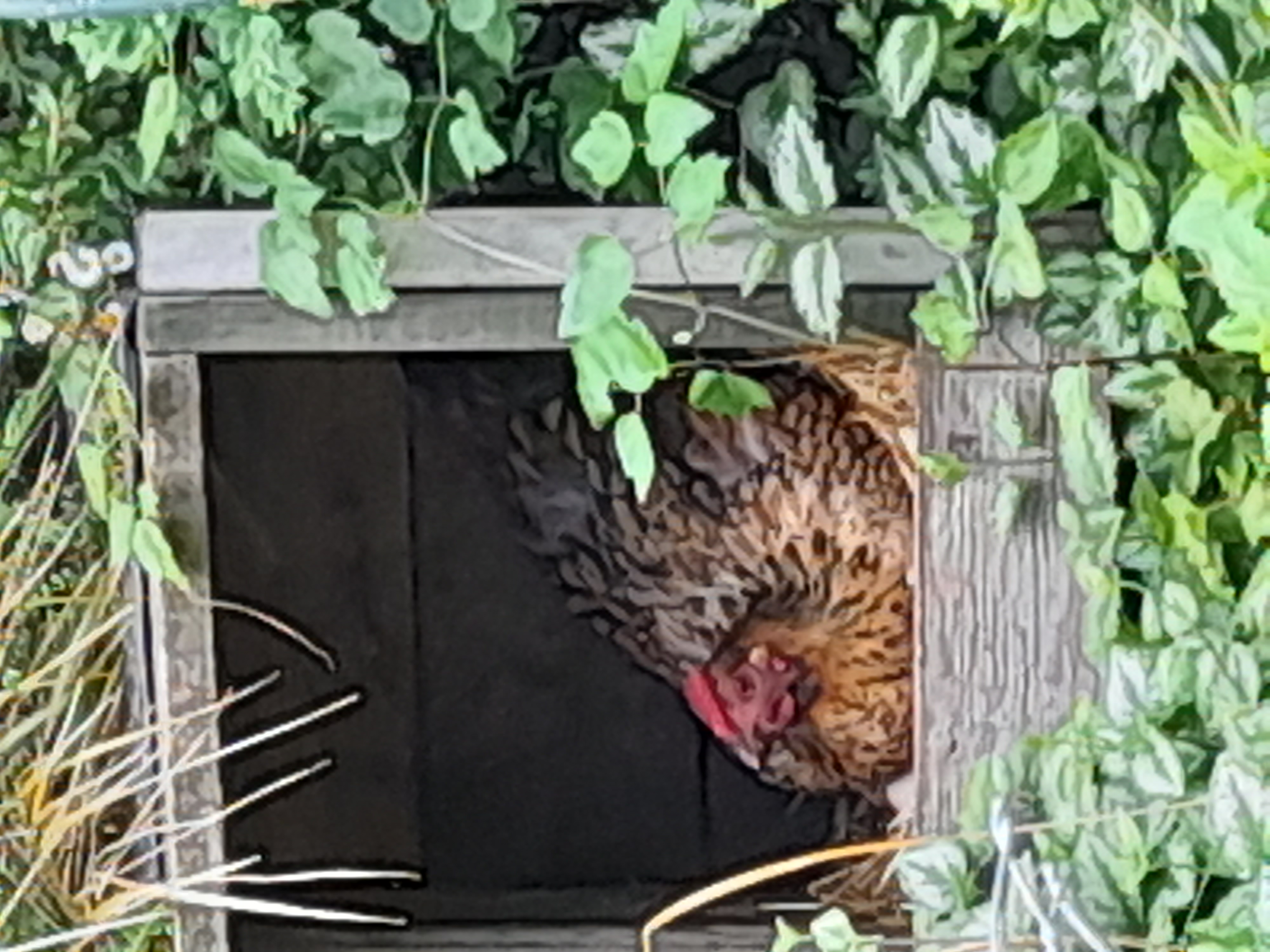
Chicks and More Chicks
I guess we should have figured out by now that with all
these roosters around there were bound to be more baby chickens than usual.
It’s a catch 22 really. Last season’s babies had at least half male chicks if
not more. They grew up and started fighting with each other in play, then in a
more serious way and then tried to mate with any hen that was also at the
bottom of the hierarchal chain, the young hens. Now a year on from that time
those hens are laying eggs but the older hens are getting broody and sitting on
nests, and those eggs eventually hatch, to our continued wonderment.
So on any given day we notice a hen sitting rather oddly
with wings outstretched a little and all puffed up. Under her of course, can be
one chick or a dozen, depending on various factors, such as when the eggs were
laid, and how long she continued to sit on the nest after a few hatched.
Usually by the time they show up in public when it’s feeding time, they are
done sitting on the old eggs that didn’t produce a chick.
But this presents a big problem for us, especially with all
these very aggressive cockerels around that fight constantly to battle their
way to the top of the flock and often step on an unwary and rather petrified
chirping baby caught in the cacophony of the moment when the food hits the
ground. It’s not the calm and peaceful mealtime that these little guys need to
survive and thrive. So John normally catches the hen that is fighting tooth and
claw to get away and I scoop up the babies as fast as possible and put them in
a deep bucket. Usually this works out okay but often one or two chicks get away
and then I have to comb the areas where they hide to extricate them from danger
and return them to the mother hen and their brother and sister chirpers.
We have two choices of accommodation for chicken family
refuge for at least 6 weeks if not longer. One is our very large chook house
that is quite secure now after losing many chickens from ferret attacks inside
it, managed by slipping through holes in the chicken wire. The other is our
chalet type of mobile home that is much smaller and right now is situated on
the cold and shaded side of some large trees that overshadow it. Currently
there is a crazy chicken mother of one chick that lives in the big hen house
with two other chicks, one the same age as her baby, at least two and a half
months old and one who is much younger, about a month old both from different
mothers. She will fight any other hen who attempts to come near her foundlings
and at the moment they eat their morning and afternoon meals in there and sleep
in there but the door remains open during the day for them to play
outside. She knows she has a good thing
and she ain’t sharing it. To make it more complicated there’s a hen that’s
laying in that house, way high up on some straw on top of something 5 feet off
the ground and she goes in there every day and lays beautiful eggs. So we can’t
exactly try to add another family group in there now. But if pushed we’d kick
out the hen and the two larger babies and one smaller one to fend for
themselves outside and put any new mothers with lots of chicks inside there instead
and keep the door shut. We thought we had to do that yesterday because one hen
appeared with 6 chicks under her but after John fed them something they just disappeared.
This morning there were two frantic babies, very young, running around at
feeding time without their mother hen. So John put them into the chalet to mix
with the other 8 or 9 few day old chicks already caught that we just put in
there a few nights ago. But it’s such a small space we won’t add another mother
and lots of babies. But an hour or two later the brown mother hen with the 6
babies showed up again with only 4 babies under her, which miraculously turned
into 5 later in the day (probably from another mother hen that only had one
baby chick, that showed up later in the day without any chick that is described
below). So now the dilemma is what to do with them. We have in the past very
successfully raised certain family groups outside when the weather is warm and
the mother is careful with her offspring. Some hens are too young and
irresponsible and don’t care for them very well. Frequently these babies are
left unattended and are picked off by one predator after another. Ferrets
usually start appearing in January here and stay around until June and they are
brutal killers but even hedgehogs eat the young chicks or the developing eggs
right in front of the mother. Of course too there are a few feral kittens and
cats around on occasion that have been thrown into or born into the wild.
Luckily my cats stay away and chicks and chickens are off limits to them. But
they too prey on other helpless birds including the vast array of waterfowl
that have used our enormous ponds from the excessive rainfall for their young.
They are quite literally sitting ducks and other types of meals for felines
here now that they’ve decimated the rabbit population around the place. Worse
still they bring in their captured birds before devouring the heads, right
through our cat door. Last night was a particularly awful spectacle around 3
a.m. that kept me up for hours that John cleaned up, unlike last week’s last
bunny remains that I took care of after stepping on it barefoot in the middle
of the night.
But we still have the quandary of figuring out what to do
with the 4 chicks and the brown hen as well as another black and white beauty
with only one baby that has lived in the gardens here for a week already. That
one also decided to skip breakfast with the crazy flock today and hasn’t been
seen since late yesterday, yet.
The perils of life for young animals cannot be overstated, so we do whatever feels appropriate at the time to give them the best care we can to protect them all. When we lose even one chick we’re devastated. When we lose a whole family we work diligently to shore up any holes in housing to give them the best chance to make it into adulthood. Such is life at the House of Cluck-Cluck, where two city slickers have been thrown into farm life as if we know what we’re doing. But after twenty years of raising chickens, we’re not as dumb as we used to be and sometimes we’re even one or two steps ahead. Key word is sometimes.

